|
The last two weeks of summer vacation are usually spent at BYSO (Boston Youth Symphony Orchestras) camp in the middle-of-nowhere Maine. This is because my wife runs the cello coaching and chamber music department of BYSO. She has been coming to this camp for nearly 20 years. This is my third year here. It is kind of relaxing, which is not my idea of a holiday but we get a nice cabin by the lake, free food at the lodge and the weather is generally nice, although can be chilly in the evenings. I tend to use the time to cycle a lot around the neighbouring countryside, read and work on the website or booklets for the coming year. Last year, we spent most of July on-island so I completely redid all the IGCSE work booklets then, and so I think that they only need a little tweaking in September. The website on the other hand still has a couple of glaring gaps - mostly AP-2, which I didn't teach last year. So I am working on them.
Have also been forcing myself to use the Google apps for new slides and worksheets. Converting existing word files to Docs is a waste of time as the formatting goes to pieces, but all new material will be done online. Why? Well, I am fast realising that the cloud-based approach is likely to the future of educational computing. Chromebooks are significantly cheaper and easier for students and the IT department to manage and it will just be a matter of time before Saltus converts. The majority of state schools in the US and the UK are on Chrome. The fiasco that we had last term after the IT dept discovered that most of the students and staff had been downloading VPNs and other dodgy software on their laptops was something to behold. Almost every student and staff had their computers ghosted! Not me though.... There are a couple of downsides to Chromebooks though, which may be addressed in future years: 1) The lack of physics software applications such as data loggers and trackers. 2) Difficulties in printing and the poor quality of PDF conversions of documents, 3) difficulties in converting existing MS Office files. Advantages are that as soon as someone logs on to the chromebook, it instantly remembers everything that you have done and that they are easily replaceable and almost student-proof. The inability to download software prevents nasty viruses etc (which our IT dept go nuts about). I am unsure what the wide-ranging implications of Mr Google running our lives though. Big Brother? If the Google hard drive (wherever that is?) gets hacked or corrupted? So - impressions? Docs, Slides and Sheets are a bit clumsier than MS Office and the quality is not as high - but for education, do we really need that? I seem to be getting the hang of it in a classroom-functional way at least. Reading the book that Deryn (head) set us for the vacation. 'Ethics of Excellence'. The main thrust of his argument is that good schools are created when there is a supportive and positive attitude and ethos surrounding the school - parents, management, staff and the community. If this happens then the students feel a sense of value and their morale and motivation increase. Well - no s**t Sherlock as the expression goes. The book is very simply written and aimed at Middle School level. Having worked or been involved in a variety of schools, this has been obvious to me from the very beginning. Hamble School where I went to (as my parents were broke) was truly awful - and STILL IS! The school that I started teaching in was also. Poorly regarded in the town and hated by majority of the students and staff. Saltus on the other hand has a long history of supportive parents and interested parties throughout the island. We do (of course) have our moments and issues, but that will always be the case, however the general ethos is positive and the majority of students feel that they are getting value from their education. The one complaint that almost every parent has is that the fees are TOO HIGH. They go up by 5-6% per year but the average staff pay rise has been less than 1% for the past 10 years. We do have a reasonably high staff turnover in the secondary department, but that is the nature of expat life and the island's immigration system, especially where there is little or no opportunity for advancement. Next term, we are having meetings and discussions about a number of topics. The one that is likely to have a major effect on me is 1) changing to a middle/high school and separating staff (current most teach both levels) and 2) changing to the North American system. This could mean that I will be out of a job by June 2019..... which I am not happy about... Anyway, rehearsals are coming to an end so signing off for now. This is where we are planning on walking while in Spain. It was closed when I lived there in 2008.
Scariest Path in the World - BBC Travel This academic year just past has been one of the busiest of recent memory. There has been some wholescale changes to most of the courses that I have been teaching, mostly due to a desire to up-the-ante by me. In no particular order:
Did these help? Time will tell. The AP-1 results were good, in that they were far higher than the global average, but lower than that of the rest of the school. For some reason College Board thinks that it is ok to write an exam that has a vastly lower pass rate than other subjects (e.g. Chem, Maths and Bio). Do they want people to avoid taking physics? Do they want physics teachers to be frowned upon by the school management? Do they want students to fail to get into good universities? Physics is a mathematical and problem-solving subject, and therefore, waffly questions are not generally appreciated by the students that are inclined to take the subject. What of the future? The plan is to further push for more independent learning. The hard part is to avoid "project fatigue", where students are doing project work in most of their subjects! Projects should be something special rather than a chore. Should we be moving away from standardised exams? This would mean driving students away that are aiming to study in the UK university system and effectively handing them to our rival Warwick Academy, but maybe getting some of their students that are heading to the US/CAN. Goals for the last two weeks, while stuck in Maine Camp:
Back from a week in California cycling and walking around San Francisco, tasting wines in Napa Valley and walking some trails in Yosemite - will post a photo or two at some point!
Been playing with the website after watching a "how to make a website" video on Youtube. Therefore changed the theme, which is not as simple as you would expect - it fouls up all the formatting. Themes seem to look good on one page but lousy on another. Trying to change the font on the title seems to be impossible. Anyway more fiddling required and more work on updating the course booklets to better cater for the new exams. Adding some simpler drill questions and conceptual questions to the homework assignments to boost the student's confidence. More homeworks but simpler, aiming for one assignment per couple of lessons. The finished set of the play Stick Fly. The model of the set can be seen at the end of the November post. Photo by the talented Kevin McDonald, who also did a hell of a lot of the work on the build. Design: Nancy Thompson. Nancy also built the chandelier and the games table!
The play was excellent, with tight direction and great acting! One of the best plays that I have ever seen! In Boston in the snow.... So some time to work on the website and some of my schemes of work. Once upon a time, back in my early days of teaching, I was told by my head of dept that once I had written a scheme of work, lesson plans and resources for a couple of shared units, then that was all the hard work done for a few years at least. Well, some 15+ years on, I can categorically say that this was a lie! It never works. For a number of different reasons: a) your classes have different students in them, what works well for one class may not work for the next set of students. b) fixed-in-stone lesson plans that are pooled in a dept (i.e. each teacher writes a set of lesson plans for a set of topics and you share them) rarely works as each teacher generally has a different teaching style. This is a fundamental problem with the UK approach to education. c) you have new ideas of how to teach a topic, or try a different approach that a colleague has done. d) new resources become available - e.g. equipment or simulations After my eight year break in teaching, I returned to find that all the lessons seemed to be based around powerpoints, a format that can suck the life out of students, and tired worksheets. Powerpoints have their place but be short and sweet - preferably as a vehicle to show an (interactive?) animation. Worse still was the nausea-inducing concept of Prezi... So, what are some of the changes has the past few years brought for my teaching? a) a more organised approach to student's work - in the form of booklets with sections that have titles, objectives and space for class/own notes as well as worksheets. This got rid of the problems of a chaotic binder of scraps of paper and the 'what-do-we-need-to-know' complaints from the students. A downside, is that unless I edit them every year, it can be very much like teaching out of a text book - 'morning class, please turn to page 8 Q3....' Students still need teaching! b) less homework, but more marking! How did that happen?! c) more time to look at new ideas and resources as the bulk of all my lessons have been planned well ahead of time. Although, the typed up lesson plans have gone. I have reverted back to the old school approach of using a pencil. I now scribble my lesson plans in the notes pages of my copy of the teaching booklet - and they change from year to year. d) a move to include more project-based learning. This is a tricky one. Students do a lot of subjects - some up to 10 - and hence have a lot of projects in, say, geography and history. Some students work better at them than others. Some prefer to work quietly on their own, others in groups. Some in the groups do the lion's share of the work and others do as little as possible. How should you assess them if they are different - presentations, displays or reports? The NC levels help in Middle School, but should you credit the effort or the scientific understanding? if so, how? For the first time, I have tried assessing S9 Physics by a 2 page project on simple machines and AP Gravitation and Orbits by an open-ended series of projects rather than a test. I am looking forward to seeing some creativity from some of the students. Personally I love taking on a project, be it fixing my boat, organising an ocean crossing, building a stage set or building ROVs.... Maybe I should have been an engineer! e) big changes in the AP Physics course - which I consider to be a retrograde step, especially for the students applying to UK universities. Things that I still need to improve on: a) WALL DISPLAYS - I am still in awe of the displays produced by primary school teachers - how do they make them look so effortlessly easy? b) keeping up with marking.... c) not upsetting the maths dept.... although, I would dearly love S10 students to arrive in September able to confidently do algebra, scientific notation, graph plotting and basic calculations, and my AP students to actually understand: trigonometry, simultaneous equations, ratios, relating graphs to equations and unit conversions. d) keeping up with the admin... Had a forwarded email from a former physics student yesterday, he is on his year's work placement (3rd year of engineering degree at Loughborough, UK) at Rolls Royce working with a team on a project to improve the efficiency of fuel cells. Very cool! Another from his class is finishing his physics degree at Sussex and looking to do a master's degree in something to do with crystals. I am very proud of both of them and this keeps me motivated during the times when the current batch are being all teenagery and annoying! Back to working on the website, which has been on the backburner for a while. Updated Units 1, 2, 6 and 7 of the IGCSE course and Units 1 and 2 of the AP Physics 1. I have been working on the second edition of the booklets, trying to improve them. The AP Physics 1 units on Kinematics and Newton's Laws are brand new as I only started the booklet scheme around Unit 5 last time around. The booklets are purely meant for my students of course! The IGCSE and KS3 ones contain copyrighted material, so are not publicly available. Eventually I will edit them and replace all the copyrighted material that we have purchased with my own resources. It is a question of the time needed to do it. Regarding the website itself, I have decided to add some text and pictures to explain the topics instead of just having a list of links and resources. This may take quite a bit of time to complete. I have also started to include some images of experiments. Since I started, I have found some good online resources to add more links to. My emphasis is to try to refer to island life in my prose! Otherwise, apart from the day to day work at Saltus, I am busy fixing my boat, which sustained some storm damage from Hurricane Joaquin and planning the next BMDS set build project. Just to make things even more intense, my friend and competitor Richard wants me to help him save another storm damaged boat from being scuttled... My boat, an elderly Etchells called Vixen at Red Hole boatyard, Bermuda. Her much younger sister, Gumpshon, hauled out at Mill's Creek boatyard after being on the rocks. By the time that I got to her yesterday, the boys had stripped out most of her gear and removed the keelbolts prior to removing the keel. Her owner can't be bothered with the boat so the plan was to scrap her. Originally I was happy as I could salvage some parts from her to replace some tired ones on Vixen. Especially excited to get a newer, straighter and stiff mast! Now the plan is to repair her and give her to some young crew to sail. Her rudder has been destroyed, her keel mashed up and her port side gouged open for a few feet. I see some MORE glasswork in my future and NO new mast (sigh...)
and this is the set that I have to manage the build of.... Killington Mountain, Vermont - July 2014
Staying in a Mountain Ski Resort for a month while Kate teaches at the Killington Music Festival. Ideal time to catch up on redoing the Physics courses for September. Work to do includes:
Have managed to get some sailing in on Lake Champlain aboard an Etchells and an old J/30, as well as some cycling and hiking - so remaining sane! |
AuthorPhysics and Science teacher at Saltus Grammar School, Bermuda - also a sailor! Archives
August 2018
Categories |
| Island Physics | random ramblings |
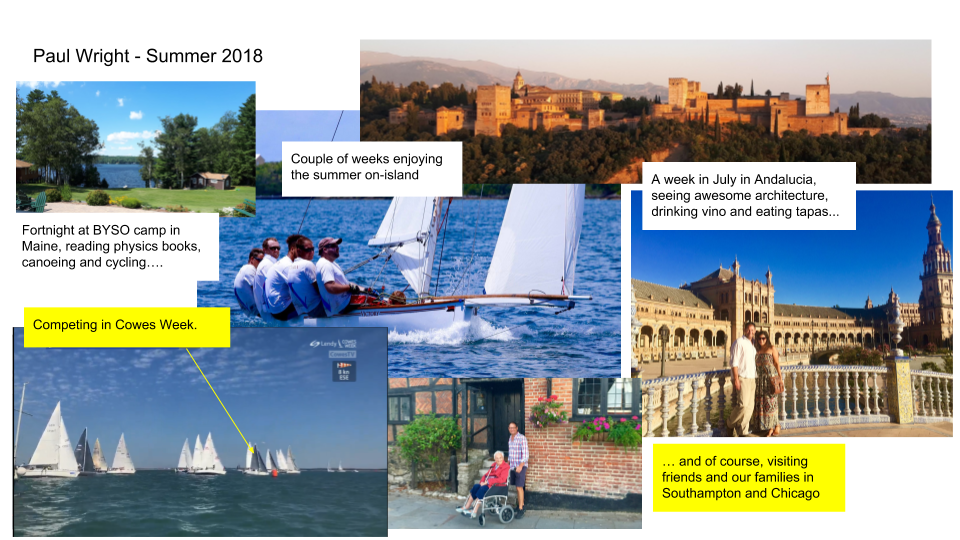
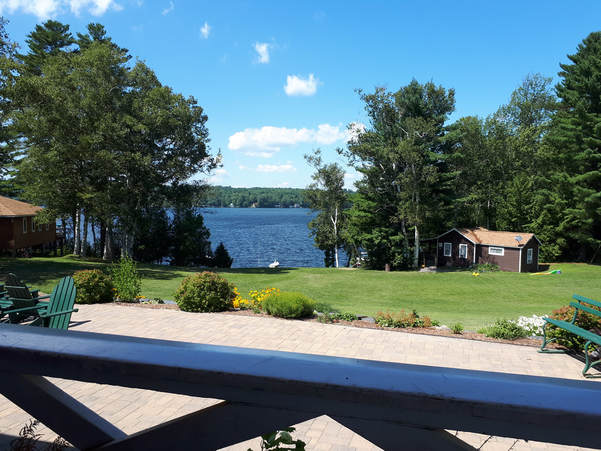
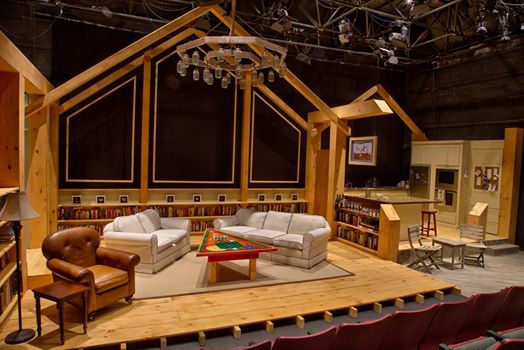
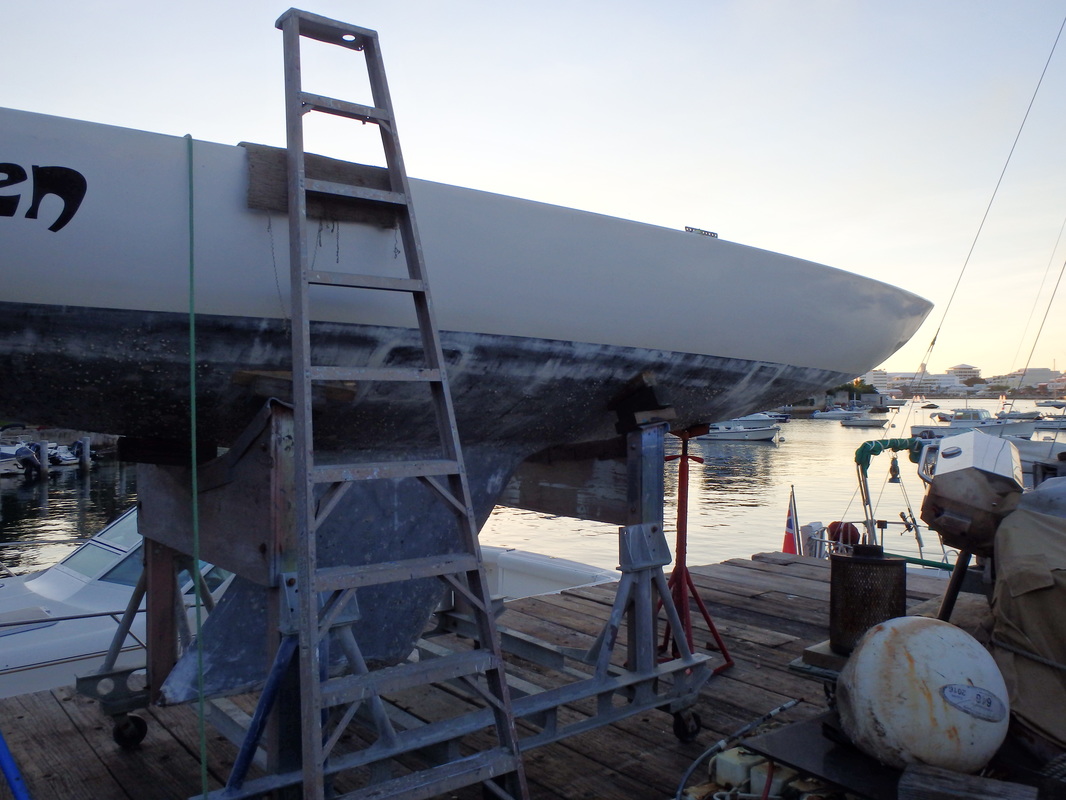
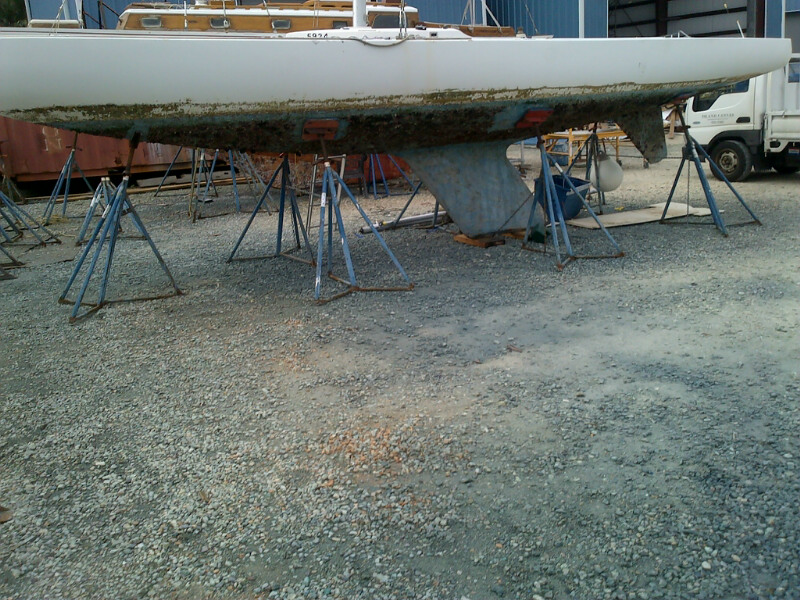
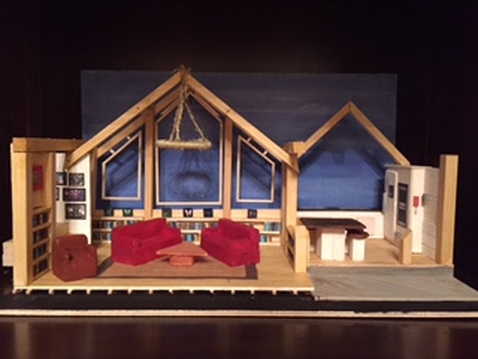
 RSS Feed
RSS Feed